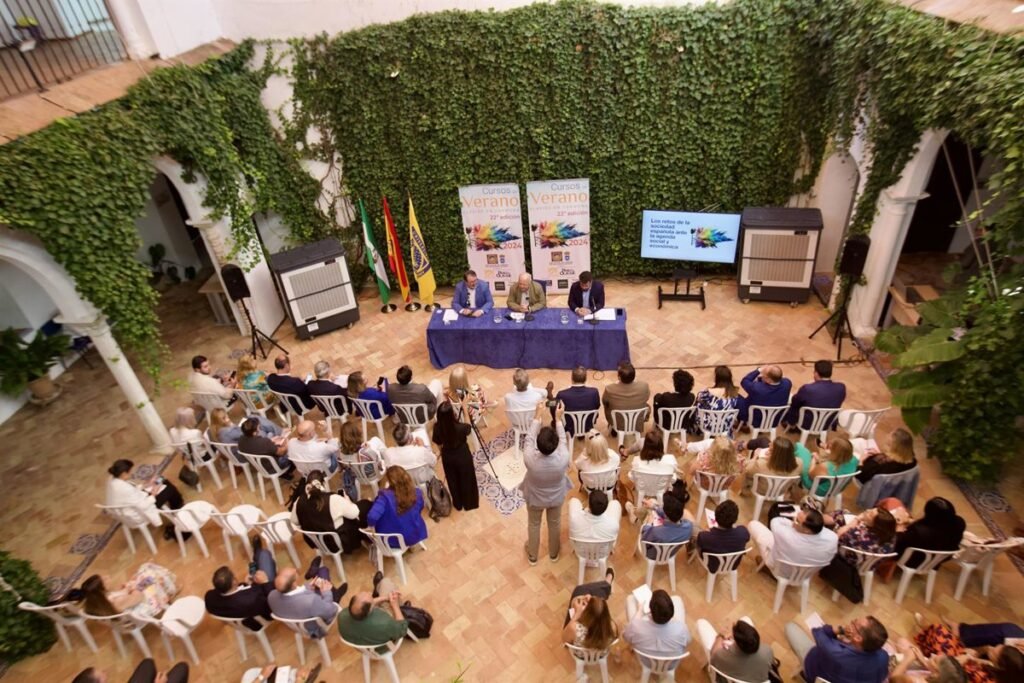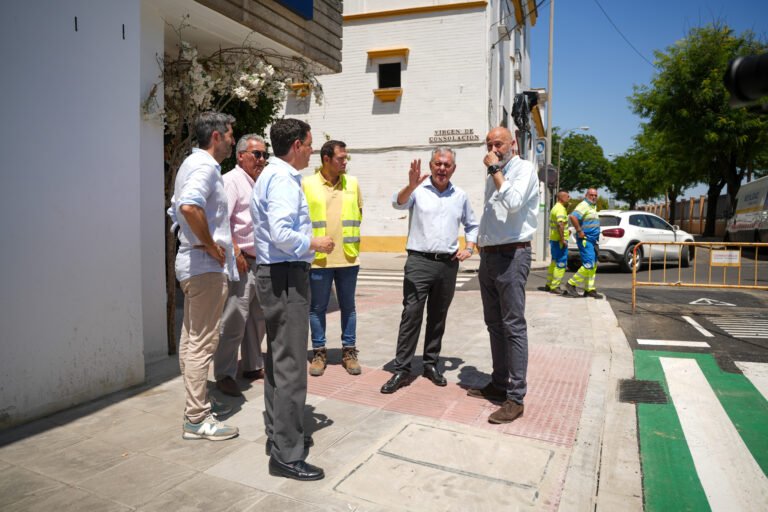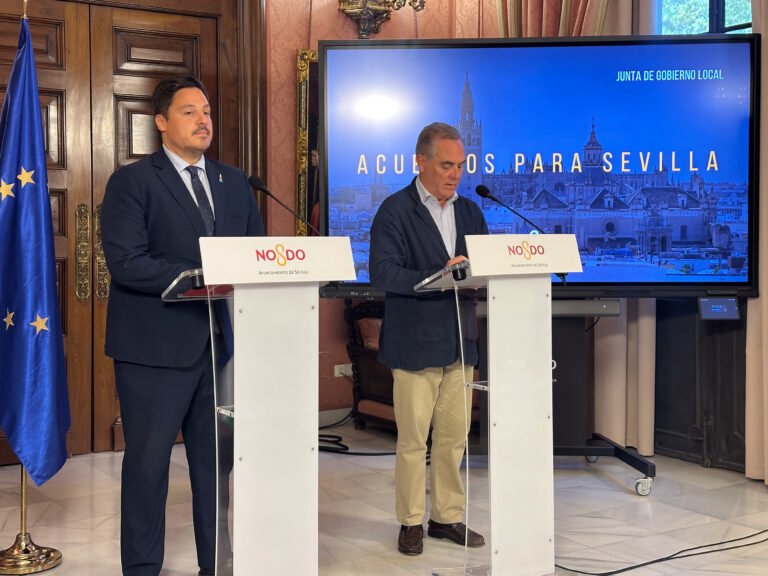
The Pablo de Olavide University (UPO) continues to strengthen «its commitment» to lifelong education and knowledge transfer through the third week of its 23rd edition of the Summer Courses at the Olavide Campus in Carmona.
Between July 7 and 11, new training proposals will be launched addressing issues such as the role of Artificial Intelligence in Law, the fundamentals of forensic psychology, healthy eating, transformative economics, business leadership focused on mental well-being, and the links between inflammation and health.
Therefore, with the aim of providing an «interdisciplinary approach with a real impact on society», the program for this upcoming week offers a total of seven courses and workshops. All of them designed to create dialogue spaces among professionals, academics, and citizens interested in contemporary challenges.
The week begins this Monday, July 7, with the start of five courses. Among them stands out the seminar ‘Law(s), teaching of Law and technological innovation: challenges and opportunities of applying artificial intelligence’, which will be held until July 9 in simultaneous teaching mode.
This course aims to analyze in depth how new technologies are impacting the training and practice of Law, and will be supervised by José María Contreras, professor of Ecclesiastical Law at UPO; from the Department of Education and Social Psychology, David Cobos; and also from the Ecclesiastical Law area, María José Parejo.
The program will examine AI as a tool in legal education, its implications in forensic practice, and especially its relationship with fundamental rights and freedoms. Thus, the proposal seeks to «generate a critical space for reflecting on the ethical limits and opportunities of digital transformation in the legal field.»
In parallel, also between July 7 and 9, the second edition of the ‘Forensic Psychology’ course will be held, directed by psychologists Vanessa García Millán and Marta Arbona García.
The training will address the main theoretical and practical foundations of this discipline, with a special emphasis on psychopathology in the judicial context, forensic psychological assessment, the preparation of expert reports, and the areas of action of the psychology professional in legal processes.
HEALTHY EATING AND PROFESSIONAL TRANSLATION
Another course starting this Monday is the face-to-face workshop ‘The world tour of healthy eating’ (July 7 and 8), directed by Javier García Pereda, professor at the Department of Molecular Biology and Biochemical Engineering at the Pablo de Olavide University.
Through a methodology that combines science and gastronomy, participants will learn about the foundations of a balanced nutrition, discover key ingredients from different culinary cultures, and put into practice knowledge applicable to daily life under the motto «learn, understand, and apply.»
In line with emerging social concerns, the online workshop ‘Building alternatives from transformative social economics’, held on July 7 and directed by the associate professor of Labor Law and Social Security at the University of Seville, Luis Ocaña, is presented as «a tool» for analyzing economic models based on sustainability, territorial roots, and community development.
The proposal aims to demonstrate how it is possible to promote a more equitable and environmentally respectful economy, focused on collective well-being.
On the other hand, on July 7 and 8, the second edition of the online course ‘Guidelines and tools for professional translation’ will also be taught, by the professors of the Department of Philology and Translation at UPO, Concepción Martín and Isabel Jiménez.
This training is aimed at both active professionals and individuals interested in starting in the field of translation, offering practical resources adapted to the demands of the current global and multilingual environment.
NEW COURSES FOR THE END OF THE WEEK
The program is completed on July 10 and 11 with two new courses that will continue to delve into areas of notable relevance.
On one hand, the second edition of ‘Leadership for well-being and mental health in the 21st century company’ will address how to transform work environments through emotional care, promoting a more humane and conscious leadership.
Likewise, ‘Inflammation and health: from myth to evidence’ will explore the relationship between inflammatory processes and various pathologies, providing scientific evidence to debunk common beliefs about health.





